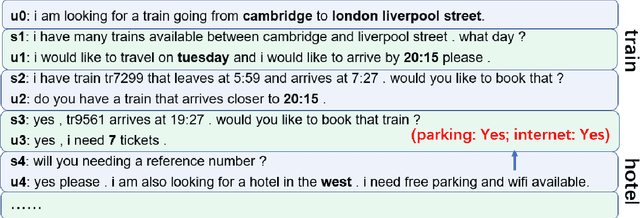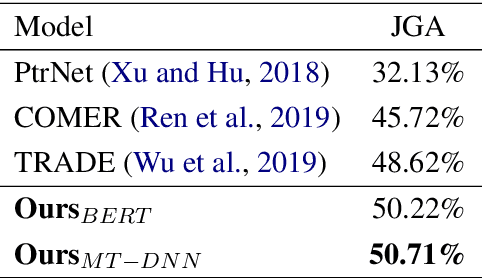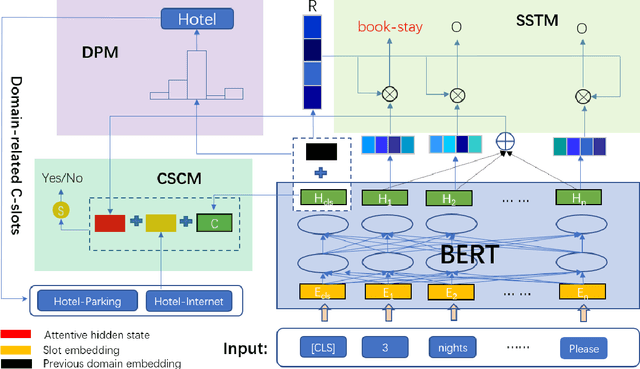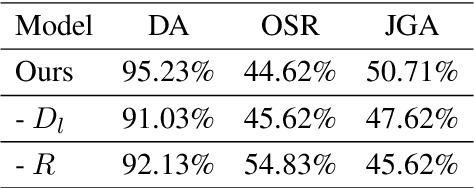Dialogue State Tracking with Pretrained Encoder for Multi-domain Trask-oriented Dialogue Systems
Paper and Code
Apr 22, 2020



In task-oriented dialogue systems, Dialogue State Tracking (DST) is a core component, responsible for tracking users' goals over the whole course of a conversation, which then are utilized for deciding the next action to take. Recently proposed approaches either treat DST as a classification task by scoring all enumerated slot value pairs, or adopt encoder-decoder models to generate states, which fall short in tracking unknown slot values or hold a high computational complexity. In this work, we present a novel architecture, which decomposes the DST task into three sub-tasks to jointly extract dialogue states. Furthermore, we enhance our model with a pretrained language model and introduce domain-guided information to avoid predicting slots not belonging to the current domain. Experimental results on a multi-turn multi-domain dataset (MultiWoz) demonstrate the effectiveness of our proposed model, which outperforms previously reported results.
 Add to Chrome
Add to Chrome Add to Firefox
Add to Firefox Add to Edge
Add to Edge